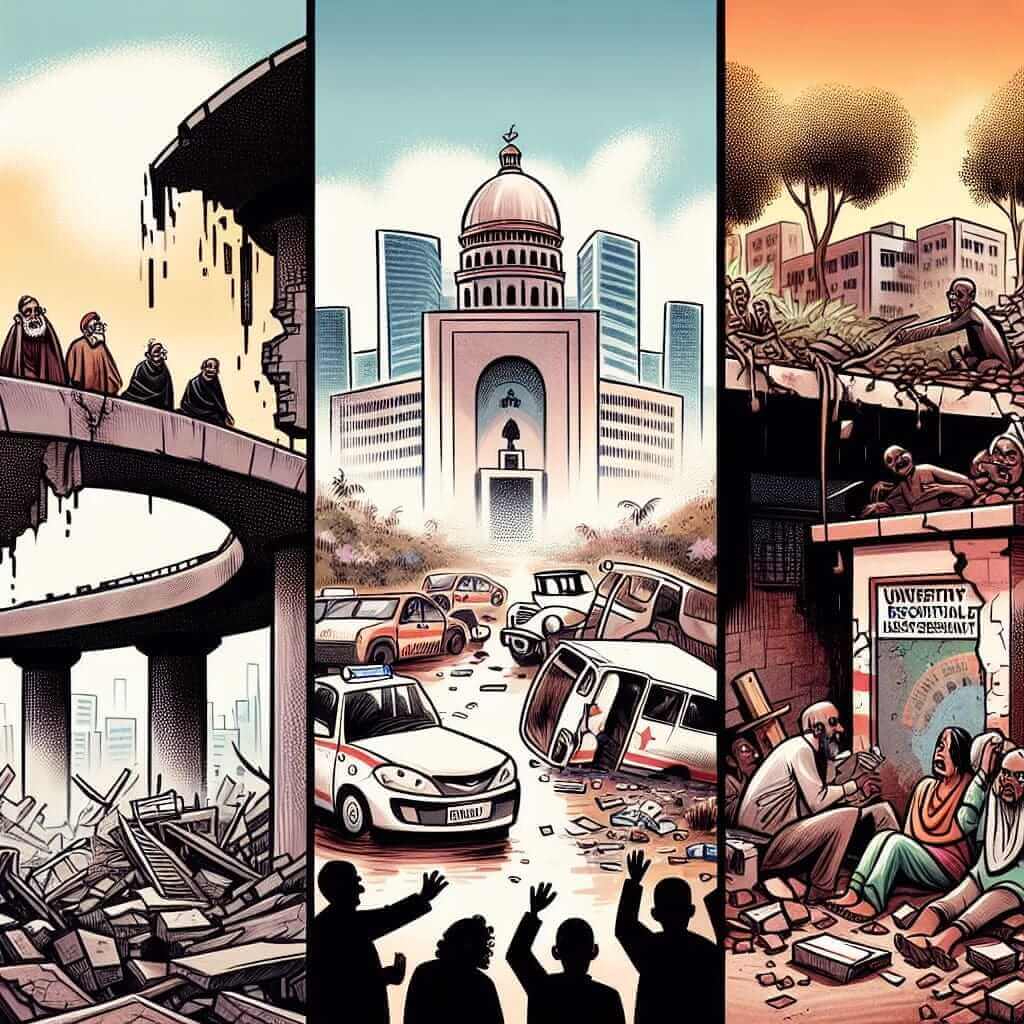Political corruption and its effects on public trust are significant and complex issues. These topics often appear in the IELTS Writing Task 2, testing candidates’ ability to discuss and analyze societal issues effectively. In this article, we explore these topics, create sample essay questions based on historical IELTS exams, and provide a complete sample answer alongside detailed analysis and vocabulary guidance.
Nội dung bài viết
Understanding the Topic
Frequency in IELTS Exams
The themes of corruption and trust recur regularly in IELTS Writing Task 2 due to their relevance and complexity. Candidates are often asked to discuss the broader implications of corruption on society and how it undermines public institutions.
Sample Questions
Based on the keyword “The effects of political corruption on public trust,” here are a few sample essay questions:
- Some people believe that political corruption is a major factor in eroding public trust in government. To what extent do you agree or disagree?
- What are the causes and consequences of political corruption on public trust?
- Discuss the impact of political corruption on public trust and suggest ways to restore faith in government institutions.
Analyzing a Sample Essay Question
Let’s choose the following question for our sample essay:
Some people believe that political corruption is a major factor in eroding public trust in government. To what extent do you agree or disagree?
Breakdown of the Essay Question
This essay question falls under the “Opinion” or “Agree/Disagree” category. Key elements to address include:
- Clearly stating your position (agree or disagree).
- Providing reasons and examples to support your opinion.
- Discussing the implications of political corruption on public trust.
Sample Essay
Introduction
Public trust in government is the cornerstone of a stable and functional society. However, political corruption has been identified as a critical factor contributing to the erosion of this trust. This essay argues that political corruption significantly damages public confidence in governmental institutions, leading to widespread cynicism and disengagement.
Body Paragraph 1
Political corruption undermines the integrity of government officials and public servants. Instances of embezzlement, bribery, and nepotism create a perception that individuals in power act out of self-interest rather than public good. This perception breeds suspicion and mistrust among the populace, who begin to question the legitimacy of their leaders. For example, in many developing countries, reports of widespread corruption have led to public protests and political instability, highlighting the dire consequences of eroded trust.
Body Paragraph 2
Moreover, political corruption leads to ineffective governance. When leaders are corrupt, resources are often misallocated, and public services suffer. Essential sectors such as healthcare, education, and infrastructure may receive inadequate funding, reducing their quality and availability. The public, seeing the direct impact of corruption on their daily lives, loses faith in the government’s ability to manage the country’s affairs. This loss of faith can result in reduced civic engagement, as people feel their participation in the political process is futile.

Body Paragraph 3
However, it is essential to consider that public trust can be restored through transparency and vigilance. Ensuring that government actions are transparent, promoting accountability, and implementing strict anti-corruption measures are steps that can rebuild trust. For instance, countries that have successfully combated corruption have seen a resurgence in public confidence and a more engaged citizenry.
Conclusion
In conclusion, political corruption plays a significant role in eroding public trust in government. The negative perception it creates, along with the tangible impact on governance, fosters a sense of disillusionment among citizens. To restore trust, governments must adopt transparent practices and enforce anti-corruption laws strictly. Only then can public confidence in political institutions be revitalized.
Total word count: 291
Key Considerations When Writing
- Clear Structure: Ensure each paragraph addresses a specific point, supporting your overall argument.
- Cohesion: Use linking words and phrases to connect ideas smoothly.
- Balanced Arguments: Discuss both the detrimental effects and potential solutions to show a comprehensive understanding.
- Examples: Provide concrete examples to illustrate your points effectively.
Vocabulary to Remember
- Erosion (n.) [ɪˈroʊʒən]: The gradual destruction or diminution of something.
- Embezzlement (n.) [ɪmˈbɛzlmənt]: Theft or misappropriation of funds placed in one’s trust.
- Nepotism (n.) [ˈnɛpəˌtɪzəm]: Favoritism granted to relatives or close friends, often by giving them jobs.
- Cynicism (n.) [ˈsɪnɪˌsɪzəm]: An inclination to believe that people are motivated purely by self-interest.
- Transparency (n.) [trænˈspærənsi]: The quality of being open and honest; not secretive.
Conclusion
Political corruption’s impact on public trust is profound and multifaceted. By addressing these issues in your writing, you can produce a compelling and high-scoring IELTS essay. Other potential essay questions related to this topic include examining specific corruption cases or comparing the effectiveness of different anti-corruption measures. Continue practicing with these themes to enhance your writing skills.
By ensuring your essay is well-structured, cohesive, and detailed, you can effectively convey your understanding of such complex societal issues.